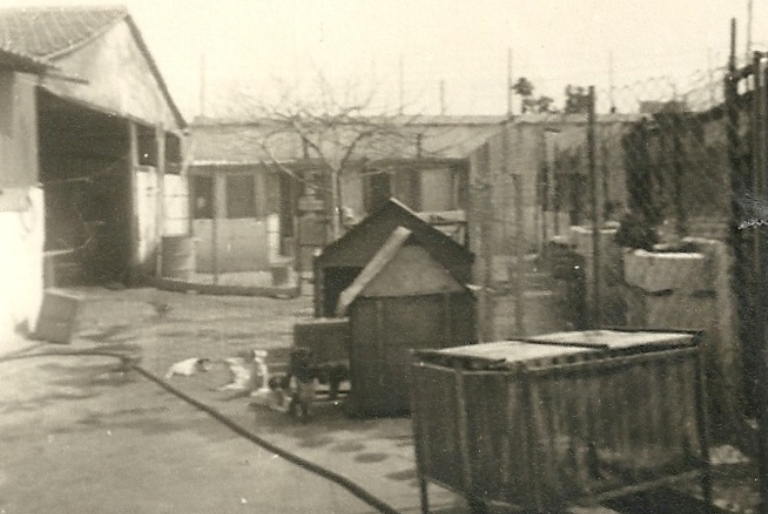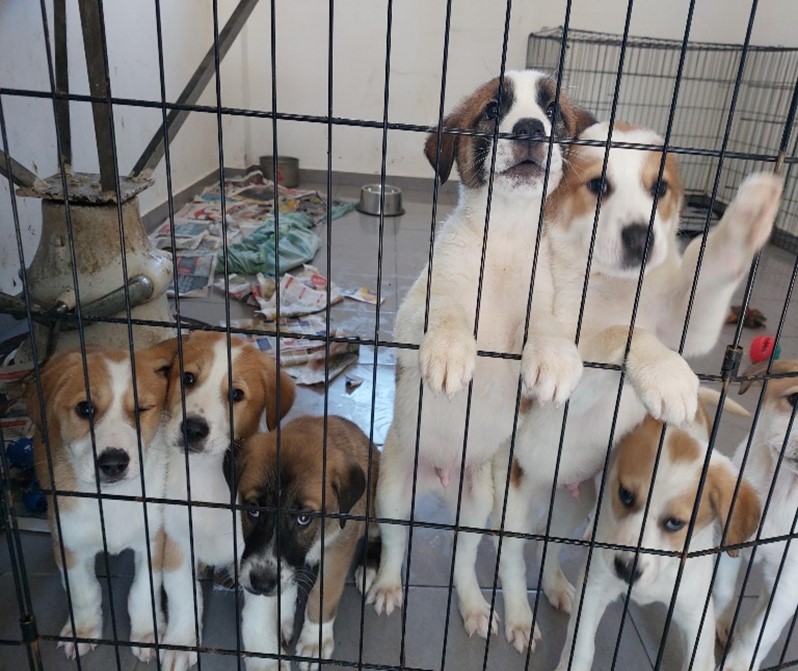Being the first entity to strive for recognition of animal rights, their needs and welfare in Israel, for many years the SPCA constituted the sole voice for animals that cannot make their own voices heard and played a pivotal role in changing public perception of caring for abandoned animals, adopting ‘homeless’ pets and neutering and spaying them
The story of the Society for Prevention of Cruelty to Animals in Israel starts in the year 1926, when a Jewish tourist from England who was visiting Palestine witnessed the suffering of donkeys from saddle sores, and injured and limping horses hitched to wagons. The tourist was filled with compassion and pity for the suffering animals, and thanks to her petition to the British government, the first shelter of the Society was opened in 1927, at 30 Salame Street in Tel Aviv. The shelter’s total area, which was less than a dunam (¼ acre) of land, could hold about 80 animals. There was a spacious dedicated stable for the donkeys and the horses, and the dogs and cats were housed in cages with a special sleeping compartment and room to move around. Over the years, with the ever-growing demand for the Society’s services, many buildings were added to the original structure on Salame Street.
In the days of the British Mandate, most of the animals being taken care of in the shelter were camels, horses and donkeys, which were used as a means of transportation for people, merchandise and raw materials. When these animals were sick or old and could no longer serve their owners, they were cruelly neglected and abandoned.
In the early days of the State, animals such as cats and dogs were perceived by the local population as physical and health threats, particularly due to the fear of catching rabies. Many people avoided contact with them and others acted towards them with cruelty, the source for which was often fear.
The daily activities of the shelter were focused around three areas: caring for abandoned and unwanted animals, running the veterinary clinic at an affordable price to all, and managing the pet boarding facilities, which could accommodate up to 20 animals.

Over the years the type of animals being treated by the Society changed parallel to the changes taking place in the social and financial climate of the country. By the 1950’s most of the ‘beasts of burden’ gradually disappeared from view and were replaced by motorized vehicles. The custom of keeping pets became more and more popular, but the obligation to take care of them for the whole course of their lives was not yet a part of the local culture. Many pet owners, after tiring of the responsibility, abandoned their household pets or their offspring, and these poor abandoned creatures were sentenced to malnutrition, starvation, diseases, and even abuse by people on the street.
The life of abandoned animals was short and harsh, either on the streets or in research laboratories. Since its founding, the Society has provided a motorized rescue vehicle for saving those unfortunate animals. The vehicle scans the streets, answers calls, and rescues injured and sick animals including frightened cats stuck in trees, on poles or on rooftops; dogs which fell into holes or wells; horses and donkeys which were injured in accidents, etc. The Society even applied pressure to be allowed to take in the abandoned animals that were collected by local authorities intended for the universities and hospital research laboratories.
From its very first day the Society has had a clear policy stating that it would not turn away any animal in distress. Every effort must be made to find a warm home for all animals, but sometimes because of illness, age or behavior problems, some of the animals are not suitable for adoption and the only option for them is euthanasia. Similarly, since the 1960’s the Society has supported spaying and neutering all animals given for adoption, with the goal of limiting, as far as possible, the uncontrolled propagation of unwanted animals.

